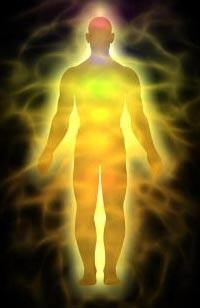Bo – The Poverty That Made Us Rich 8: 9
The Poverty That Made Us Rich
8: 9
The poverty that made us rich DIG: In what ways did Yeshua become poor? In what ways has He made us rich? What does Messiah’s eternity have to do with our eternity?
REFLECT: What about Yeshua’s example motivates you to be generous with your money, time, and energy? What inhibits you? How are you rich spiritually? Impoverished?
Messiah did not make us materially rich, but gave us all the blessings of salvation.
In encouraging the Corinthians to bring their contribution to the collection for the poor believers in Jerusalem to a satisfactory completion (8:6a), Paul has thus far appealed to the example of the Macedonians (8:1-5), to the Corinthians’ own promising beginning (8:6b), to their desire for spiritual excellence (8:7), and again to the eagerness of the Macedonians (8:8b). Now he turns to the supreme example of Yeshua Messiah. The transition from 8:8 to 8:9, expressed by the word for, is revealing because it suggests that Paul saw in Messiah the finest example of One who showed eagerness and generosity in giving as a demonstration of His love (8:8a). If the sacrificial giving of the Macedonians did not stimulate the Corinthians to give to the collection, surely the example of Messiah’s selflessness would. For you know how generous our Lord Yeshua the Messiah was (8:9a).187

The poverty of Messiah (8:9b): Although Yeshua possessed all the riches of ADONAI from all eternity, yet for our sakes He became poor. Some have understood that statement as a reference to Messiah’s financial poverty during His earthly life. However, the Lord’s true impoverishment did not consist of the lowly circumstances in which He lived, but in the reality that though He was in the form of God, He did not regard equality with God something to be possessed by force. On the contrary, He emptied Himself, in that He took on the form of a slave by becoming like human beings are (Phil 2:6-7). In other words, the Lord Yeshua Messiah became poor in His incarnation, when He was born of woman (Gal 4:4), as a human being with a nature like our own sinful one, but without sin (Romans 8:3), a descendant of David according to the flesh (Romans 1:3), and made . . . for a little while lower than the angels (Hebrews 2:7 and 9). He left heaven’s glory (John 17:5) and laid aside the free use of His divine prerogatives.
Though He existed in the form of God, possessing all the riches of deity, Yehsua emptied Himself by become poor by taking the form of a slave. He suffered human weakness and limitations, becoming hungry (Matthew 4:2, 21:18), thirsty (John 4:7, 19:28), and tired (Mark 4:38, John 4:6). In addition, He was tempted in all things as we are, yet without sin (Hebrews 4:15). So completely did Yeshua identify with His people as their faithful High Priest (see the commentary on Hebrews, to see link click Ay – Messiah’s Qualifications as our Great High Priest), that He humbled Himself by becoming obedient to the point of death on the cross. By doing so, He defeated the powers of hell, accomplished the work of redemption that God the Father had assigned to Him, and gave His people the priceless riches of salvation.
The riches of Messiah (8:9c): Though as God, Yeshua owns everything in heaven and on earth (Exodus 19:5; Deuteronomy 10:14; Job 41:11; Psalm 24:1, 50:12; First Corinthians 10:26), His riches do not primarily consist of what is material. The riches in view here are those of Messiah’s supernatural glory, His position as God the Son, and His eternal attributes. Our eternal life (see the commentary on The Life of Christ Ms – The Eternal Security of the Believer) is tied to His eternal life. If He is not eternal, He must have had a beginning, and would therefore be a created being. The fact that Messiah is eternal offers clear, powerful, and irrefutable proof of His deity, for it is an attribute that only God can possess.
Despite the false claims of heretics throughout history, the Bible teaches that Yeshua Messiah is not merely preexistent to human history, but eternal. He does not depend on anything outside of Himself for His existence, nor was there ever a time when the Second Person of the Trinity came into being. Yeshua is not an emanation, a demigod, Michael the archangel, a spirit created by God, or an exalted man; He is the Creator (John 1:3 and 10; Colossians 1:16; Hebrews 1:2), not a creature.
As the Second Person of the Trinity, Yeshua is as rich as God the Father. To the Colossians Paul wrote: For in Yeshua all the fullness of Deity dwells in bodily form (Colossians 2:9), and He is the radiance of the Sh’khinah glory and the exact representation of His nature (Hebrews 1:3). Arguments for Messiah’s eternity and deity are inseparable. Since the Scriptures reveal Him to be eternal, and only God can be eternal; thus, Yeshua must be God. As a result, He owns the universe and everything in it, possessing all power and authority (Matthew 28:18), and is to be glorified and honored (John 5:23; Philippians 2:9-11).
Dear Heavenly Father, Praise You for how great and deep Your love is! You willingly wrapped Your arms around the limitations of a human body (Phil 2:5-11). You focused on the eternal joy of bringing many into heaven by humbly enduring a shameful death, for the joy set before You, You endured the cross, disregarding its shame (Heb 12:2b). Your loving arms welcome into Your family all who receive You as their Lord and Savior. But whoever does receive You, those trusting in Your name, to these You gave the right to become Your children (John 1:12). It would have been fair if You made us Your servants, but You gave those who love You the privilege of being Your children.
The gift of Messiah (8:9d): The purpose of Messiah’s taking on human flesh was so that by means of His poverty, poor sinners might become rich. He did not make us materially rich, but gave us all the blessings of salvation – forgiveness, joy, peace, eternal life, light, and glory. Peter described those riches as an inheritance which is imperishable and undefiled and will not fade away, reserved in heaven for us (First Peter 1:4). This was not the first time Paul had described the riches in Messiah to the Corinthians. In First Corinthians 1:4-5a he wrote: I thank my God always for you because of God’s love and kindness given to you through the Messiah Yeshua, in that you have been enriched by Him.
The glorious truth that believers have been blessed with every spiritual blessing in the heavenly places in Messiah (Ephesians 1:3) through His self-emptying, self-sacrificial love should cause us to be grateful. More than that, however, it should motivate us to give freely, sacrificially, and generously to others. We must follow the example of our Lord who became poor to make others rich. How can we receive all the riches of Messiah and yet be unwilling to meet the needs of others (James 2:15-16)? John wrote: If someone has worldly possessions and sees his brother in need, yet closes his heart against him, how can he be loving God (First John 3:17). Some may view Paul’s inclusion of this verse, with its profound theological truth, in the context of giving as odd. But that loses sight that theological truth does not exist in isolation from every life. The seemingly mundane issue of the collection was, in reality, connected to the central truth of our faith, namely, that Yeshua Messiah’s voluntary poverty makes the spiritually destitute rich.188





















